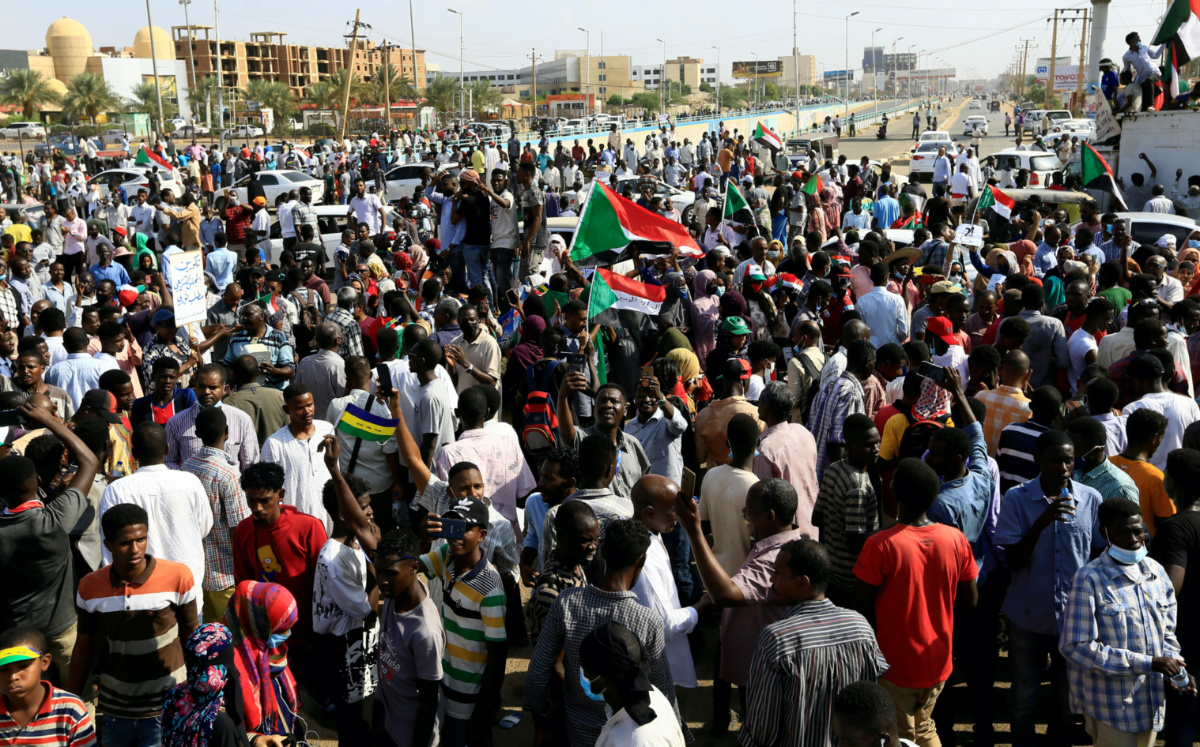Nairobi, Kenya/Durban, South Africa
Thomson Reuters Foundation
Internet curbs and shutdowns in African countries have disrupted communication and complicated everyday life for millions of people over the last year, with Sudan becoming the latest nation hit by sweeping connectivity blocks this week.
Telecommunications were interrupted in Sudan on Monday after the army seized power from a transitional government in a coup that halted Sudan’s transition to democracy two years after a popular uprising ended decades of authoritarian rule.
Restrictions on online access not only make it difficult for people to stay in touch, or pay bills, but are a form of “digital authoritarianism” that threatens basic freedoms in parts of Africa, digital rights groups say.
Here are details of recent internet disruptions in six African countries:
Sudan
Mobile internet services have been largely blocked since Monday, Sudanese smartphone users said, though connectivity returned briefly on Tuesday – allowing some people to post messages and upload images and videos on social media.
Internet freedom monitor Netblocks said the disruptions appeared consistent with an internet shutdown, adding that the disruption was “likely to limit the free flow of information online and news coverage of incidents on the ground”.

Demonstrators protest against prospect of military rule in Khartoum, Sudan, on 21st October. PICTURE: Reuters/Mohamed Nureldin Abdallah.
Access Now, another digital rights organisation, said fixed and mobile internet connectivity had been halted across the country on all major internet service providers.
“Shutting down the internet while a military coup is unveiling and protesters are out on the street is a clear sign that someone is trying to cover up something,” Felicia Anthonio, campaigner and #KeepItOn Lead at Access Now, said in a statement.
Human rights groups, the United Nations and foreign governments have also called on Sudan’s military leadership to restore internet services immediately.
The military leadership has made no comment on the shutdown.
The type of disruption seen in Sudan cannot always be worked around by using circumvention software or Virtual Private Networks, Netblocks said, estimating the daily cost of the outage to the Sudanese economy at more than $US45 million.
There have been several major internet shutdowns in Sudan during political turmoil in recent years.
During protests in 2018/2019, access to major social media platforms was cut for 68 days from December, 2018.
A more extensive mobile internet shutdown left Sudan offline for 36 days from June, 2019, after security forces carried out a raid on pro-democracy protesters, killing more than 100 people.
Zambia
In August, Zambia blocked access to social media platforms including WhatsApp, Twitter, Instagram and Facebook during the country’s presidential election.
Access Now said at the time the shutdown had “severely undermined people’s ability to communicate and receive information through the course of the election, while also impacting their lives, work, education, and relationships”.
Many Zambians reported using VPNs to gain access to the social media apps that were inaccessible.
Access was restored after two days, with the High Court of Zambia ordering the government to end the internet shutdown following a lawsuit put forward by digital rights group Chapter One Foundation challenging the decision.
Eswatini
In late June, eSwatini – a tiny landlocked nation in Southern Africa where recent protests against the absolute monarch turned violent – imposed an internet blackout on the grounds of “national security”.
The shutdown cost the country $US15.8 million, according to Top10VPN.
Unable to earn, check in on his family and communicate with his clients, consultant and local human rights activist Melusi Simelane filed suit against the government for the shutdown and warned activists would do the same if more shutdowns took place.
Nigeria
In early June, nearly 200 Nigerians filed a lawsuit to lift a government ban on the use of Twitter.
The ban was announced two days after the social media giant removed a post from President Muhammadu Buhari that threatened to punish regional secessionists, and the government said those who continued to use Twitter would be prosecuted.
The government said the ban was unrelated to his post removal and, like eSwatini and Zambia, related to preventing the spread of violence in the country.
So far, internet disruptions have cost Nigeria $366.9 million, making it the third most economically impacted nation from shutdowns to date after India and Myanmar, according to Top10VPN.
Uganda
Ugandan authorities ordered an internet shutdown on the eve of January’s presidential election, saying they wanted to avoid outside interference in the vote.
Four days later they lifted the connectivity ban, which rights groups said had cost the country nearly $52 million, taking a particularly heavy toll on informal vendors dependent on mobile money apps.
Soon after, the East African Law Society that represents some 18,000 lawyers from seven nations sued the government over the blackout, saying it had threatened transparency, accountability, the rule of law and good governance.
The outcome of this case is not yet public.
Ethiopia
As a civil war rages in Ethiopia, and reports of the extent of the violence trickle slowly out of the country, rights groups are calling for the internet to remain open to prevent emergency services disruptions and to monitor human rights abuses.
Since Prime Minister Abiy Ahmed’s administration came to power in April 2018, Access Now has recorded 13 shutdowns, sometimes lasting for weeks at a time.
But as in other countries, demand for VPN services have surged, allowing internet users to bypass some restrictions.






